Year 1
The English curriculum is built around the three interrelated strands of language, literature and literacy. Teaching and learning programs should balance and integrate all three strands. Together, the strands focus on developing students' knowledge, understanding and skills in listening, reading, viewing, speaking, writing and creating. Learning in English builds on concepts, skills and processes developed in earlier years, and teachers will revisit and strengthen these as needed.
In Year 1, students communicate with peers, teachers, known adults and students from other classes.
Students engage with a variety of texts for enjoyment. They listen to, read, view and interpret spoken, written and multimodal texts designed to entertain and inform. These encompass traditional oral texts including Aboriginal stories, picture books, various types of stories, rhyming verse, poetry, non-fiction, film, dramatic performances and texts used by students as models for constructing their own texts.
The range of literary texts for Foundation to Year 10 comprises Australian literature, including the oral narrative traditions of Aboriginal and Torres Strait Islander Peoples, as well as the contemporary literature of these two cultural groups, and classic and contemporary world literature, including texts from and about Asia. Literary texts that support and extend Year 1 students as independent readers involve straightforward sequences of events and everyday happenings with recognisably realistic or imaginary characters. Informative texts present a small amount of new content about familiar topics of interest and topics being studied in other areas of the curriculum. These include decodable and predictable texts which present a small range of language features, including simple and compound sentences, some unfamiliar vocabulary, a small number of high-frequency words and words that need to be decoded phonically, as well as illustrations and diagrams that support the printed text.
Students create a variety of imaginative, informative and persuasive texts including recounts, procedures, performances, literary retellings and poetry.
(source: www.australiancurriculum.edu.au)
Achievement Standard
Receptive modes (listening, reading and viewing)
By the end of Year 1, students understand the different purposes of texts. They make connections to personal experience when explaining characters and main events in short texts. They identify that texts serve different purposes and that this affects how they are organised. They describe characters, settings and events in different types of literature.
Students read aloud, with developing fluency. They read short texts with some unfamiliar vocabulary, simple and compound sentences and supportive images. When reading, they use knowledge of the relationship between sounds and letters, high-frequency words, sentence boundary punctuation and directionality to make meaning. They recall key ideas and recognise literal and implied meaning in texts. They listen to others when taking part in conversations, using appropriate language features and interaction skills.
Productive modes (speaking, writing and creating)
Students understand how characters in texts are developed and give reasons for personal preferences. They create texts that show understanding of the connection between writing, speech and images.
They create short texts for a small range of purposes. They interact in pair, group and class discussions, taking turns when responding. They make short presentations on familiar topics. When writing, students provide details about ideas or events, and details about the participants in those events. They accurately spell high-frequency words and words with regular spelling patterns. They use capital letters and full stops and form all upper- and lower-case letters correctly.
(source: www.australiancurriculum.edu.au)
- Plus Plan
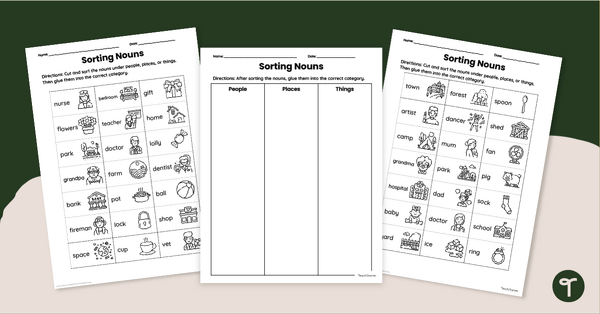
Noun Sort Worksheet Pack
Use a noun sort worksheet to help your students practise identifying people, places, and things.
- Plus Plan
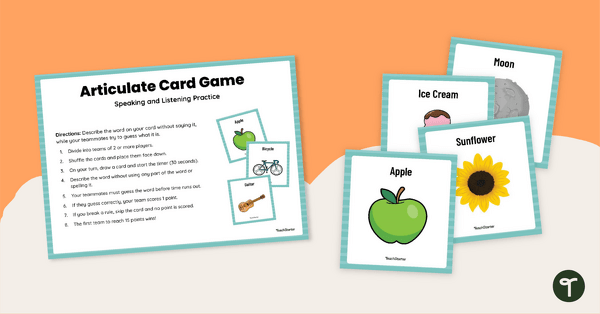
Oral Language Picture Cards - Express it
Build oral communication and vocabulary skills with Oral Language Picture Cards – Express It!
- Plus Plan
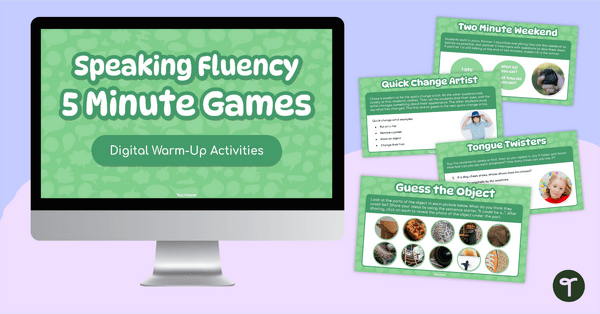
5 Minute Speaking Fluency Activities Warm Up
Improve your students' communication skills with these 5 minute speaking fluency activities.
- Plus Plan
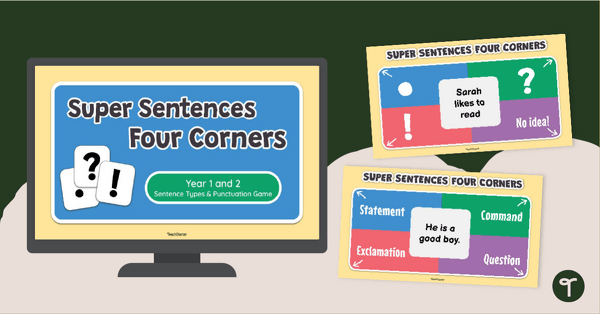
Sentence Types & Punctuation for Grade 1 - Four Corners Game
Review sentence types and punctuation for grade 1 students with an engaging Four Corners Punctuation Game.
- Plus Plan
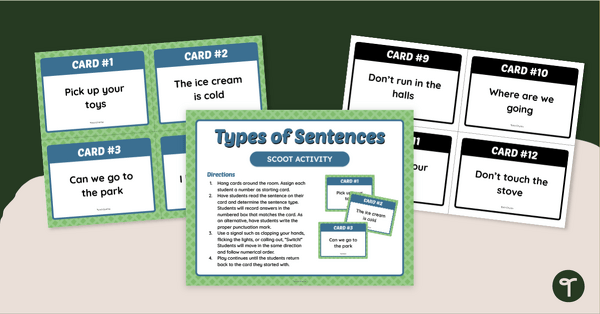
Types of Sentences Game - Year 1-2 SCOOT!
Play a round of Types of Sentences SCOOT! To help your students practise identifying types of sentences.
- Plus Plan
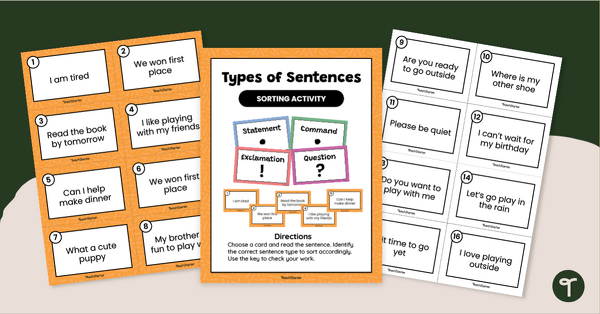
Sort It Out! - Types of Sentences Practice Activity
Practise sorting and matching examples of the four types of sentences (command, statement, question, exclamation) with a Year 1 Types of Sentences Practice Game.
- Plus Plan
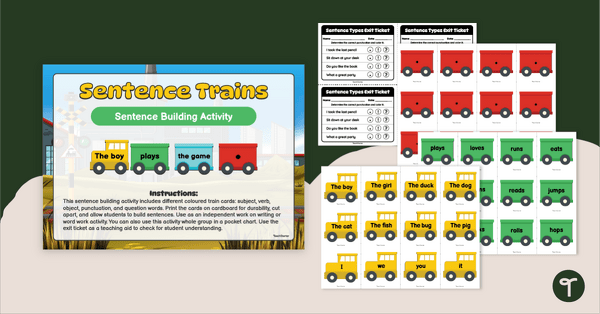
Sentence Trains - Sentence Building Activity
Teach your year 1 students about sentence types and punctuation with Sentence Trains, a fun Sentence Building Activity.
- Free Plan
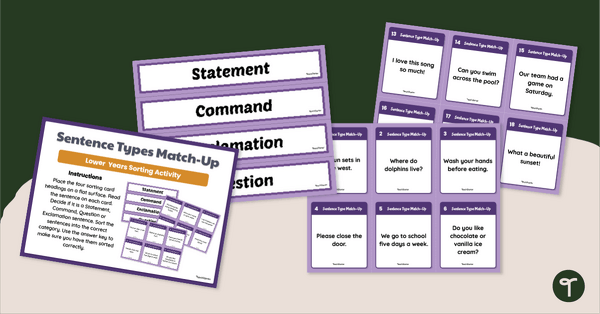
Statement, Question, Command, Explanation – Match Up Cards
Teach younger students about the four types of sentences with a printable sentence types matching activity.
- Plus Plan
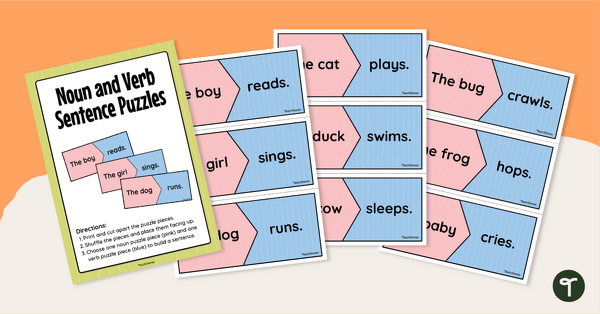
Noun and Verb Sentence Puzzles
Use this nouns and verbs game puzzle to help students identify nouns and their matching verbs while building simple sentences in a fun, hands-on way.
- Free Plan
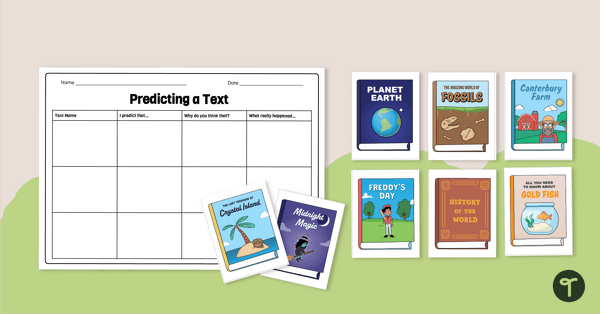
Free Story Prediction Worksheet
Encourage students to think critically before reading with this Story Prediction Worksheet.
- Plus Plan
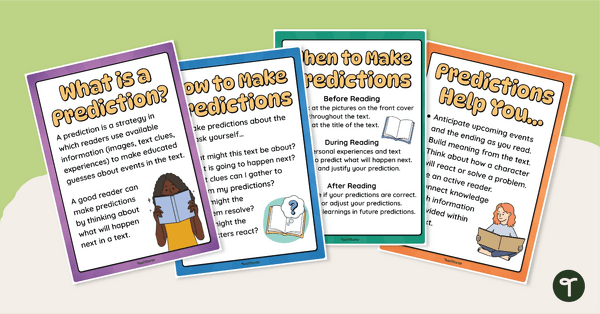
Making Predictions Poster Pack
Support student learning with these Making Predictions Posters explaining when and how to make predictions.
- Plus Plan
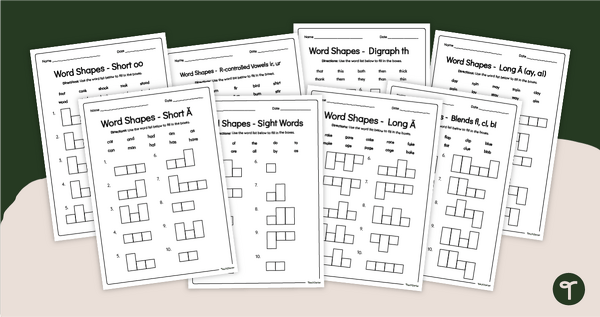
Elkonin Boxes - Word Shapes Worksheets - Year 1
Build early phonics skills with our printable Phonics-Based Elkonin Boxes Word Shapes Worksheets.
- Plus Plan
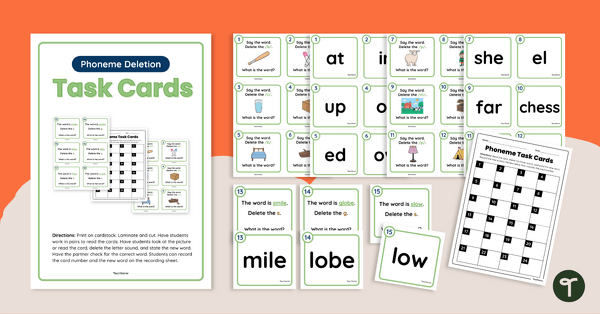
Phoneme Deletion Activity Task Cards
Explore phoneme deletion with this set phoneme deletion activity task cards.
- Plus Plan
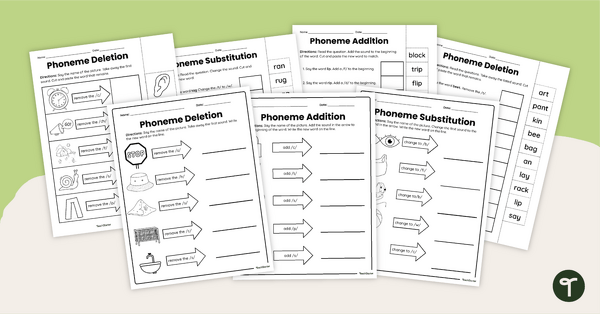
Phoneme Manipulation Worksheet Pack
Use these phoneme manipulation worksheets to help students develop their phonemic awareness skills.
- Plus Plan
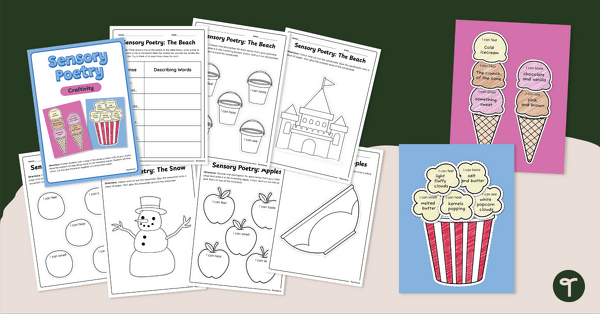
Five Senses Poem Craft Templates
Use this five senses craft to introduce your students to descriptive language and five senses poetry.
- Plus Plan
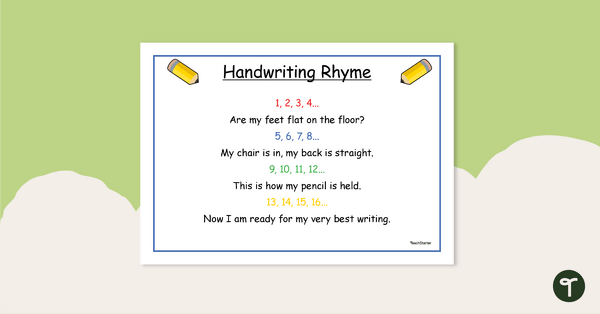
Handwriting Rhyme Poster
Use this handwriting rhyme to help your students prepare themselves for a handwriting lesson.
- Plus Plan
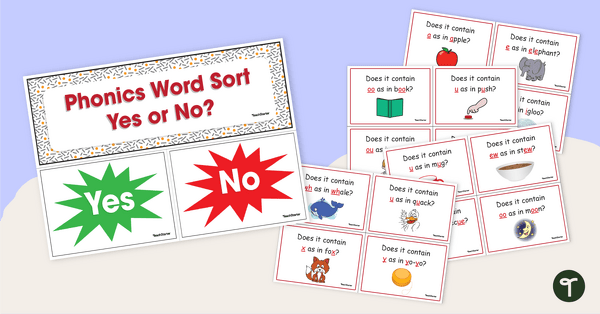
Yes or No? Phonics Sorting Activity
Use this phonics activity to help your students identify the different phonemes that make up a word.
- Plus Plan
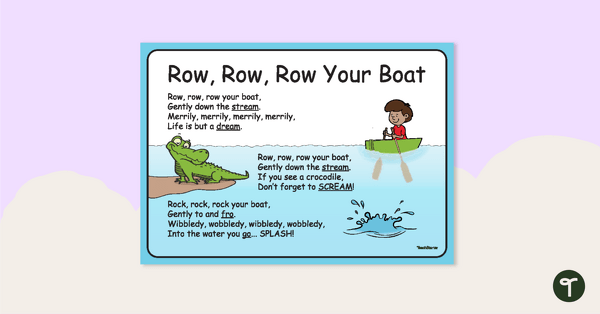
Row Row Row Your Boat – Nursery Rhyme Poster
Use this “Row Row Row Your Boat” nursery rhyme poster to teach your youngest students about rhyme and rhythm.
- Plus Plan
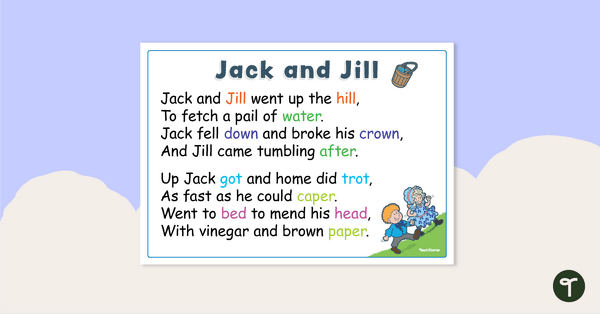
Jack and Jill – Nursery Rhyme Poster
Use this “Jack and Jill” nursery rhyme poster to teach your youngest students about rhyme and rhythm.
- Free Plan
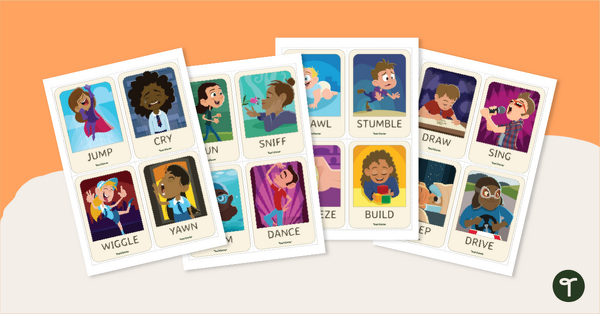
Verb Charades Active Game
Practise action verbs with this fun active charades game!
- Plus Plan
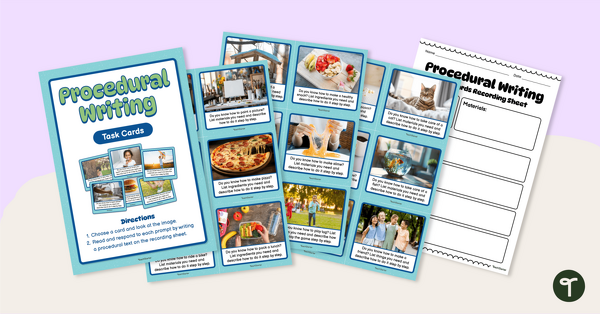
Procedural Writing Prompt Task Cards
Need some procedural writing ideas? Download these task cards to use as a writing activity during your procedure writing unit.
- Plus Plan
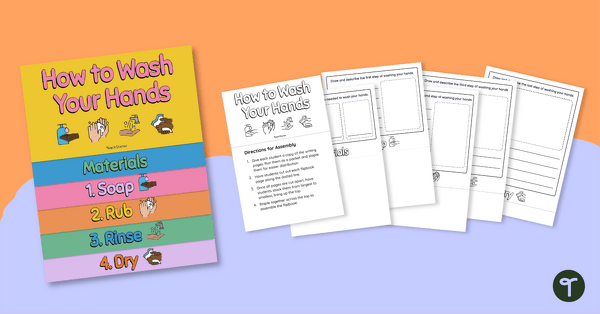
How to Wash Your Hands Flipbook
Use this “How to Wash Your Hands” procedural writing activity to help familiarise your students with the structural elements of procedure texts.
- Plus Plan
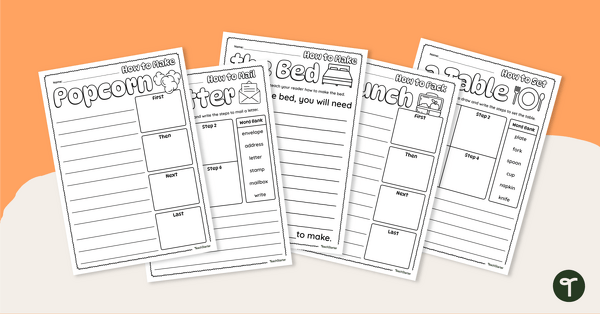
Procedural Writing Templates – "How to" Prompts
Get your students to write procedural texts with this set of differentiated procedure writing prompt templates.
- Plus Plan
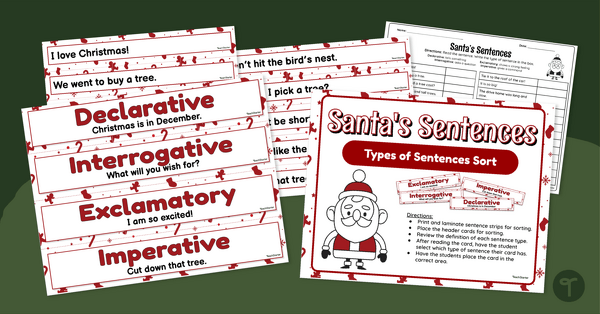
Christmas Activity Printables - Types of Sentences Sort
Help your students identify the four types of sentences with a printable Christmas sorting activity on declarative, interrogative, imperative, and exclamatory sentences.
- Plus Plan
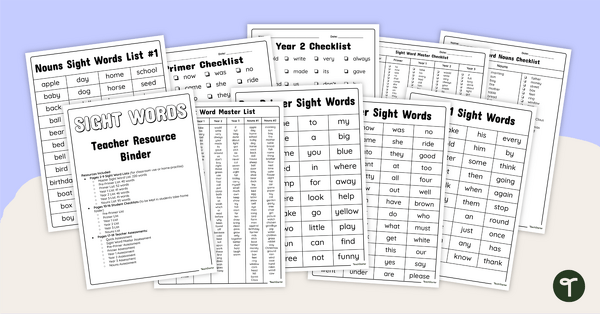
Sight Word Lists – Teacher Resource Binder
Use this collection of checklists, student pages and quick-check assessments when reviewing Dolch sight words spanning from pre-primer to year 3.
- Plus Plan
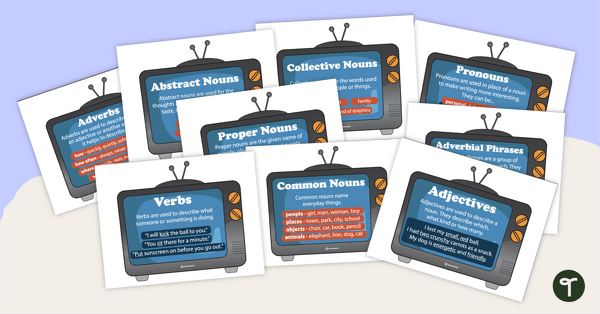
Grammar TVs
Grammar presented on TVs.
- Plus Plan
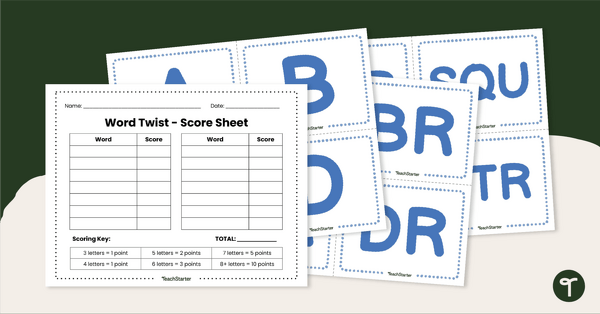
Word Twist – Word Building Game
Encourage word building in your classroom with this fun Boggle-style game!
- Plus Plan
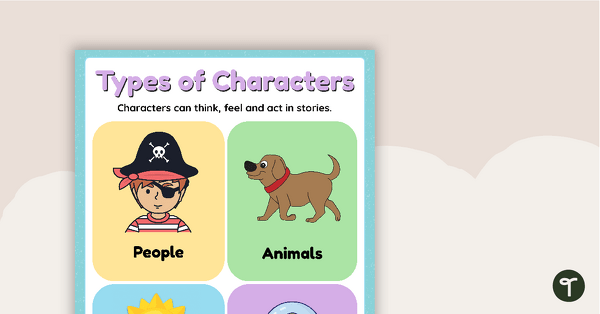
Types of Characters - Poster
Remind students about the types of characters that can be found in stories with this colourful classroom poster.
- Plus Plan
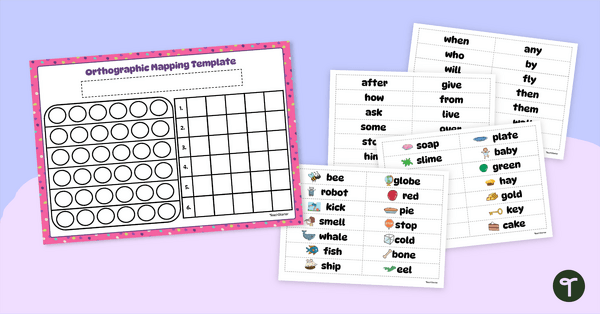
Orthographic Mapping Template and Word Cards
Practise mapping out words using an orthographic mapping template and word cards
- Plus Plan
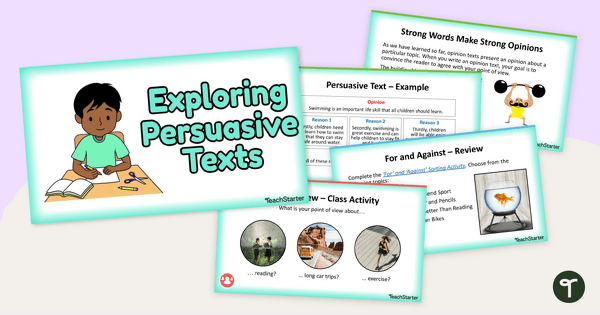
Exploring Persuasive Texts PowerPoint - Year 1 and Year 2
A 35 slide editable PowerPoint template to use when teaching your students about the structure and language features of persuasive texts.
- Plus Plan
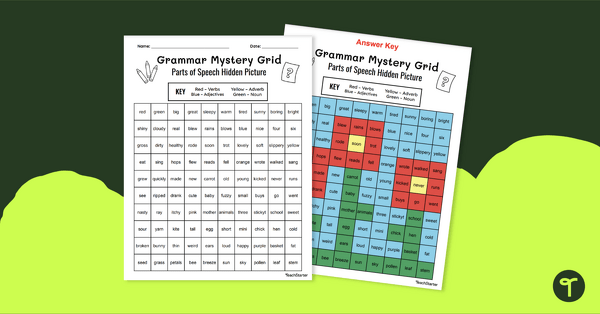
Parts of Speech - Colour by Code Mystery Picture Worksheet
Follow the colour-coded parts of speech guide to fill in the word grid and reveal a mystery image.
- Plus Plan
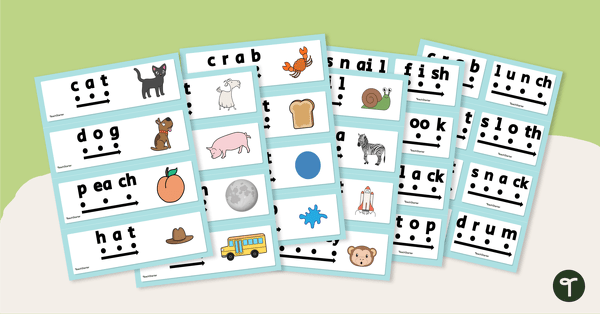
Blending Phonemes Fluency Strips
Develop students’ ability to blend phonemes in common words with this comprehensive set of phoneme blending fluency strips.